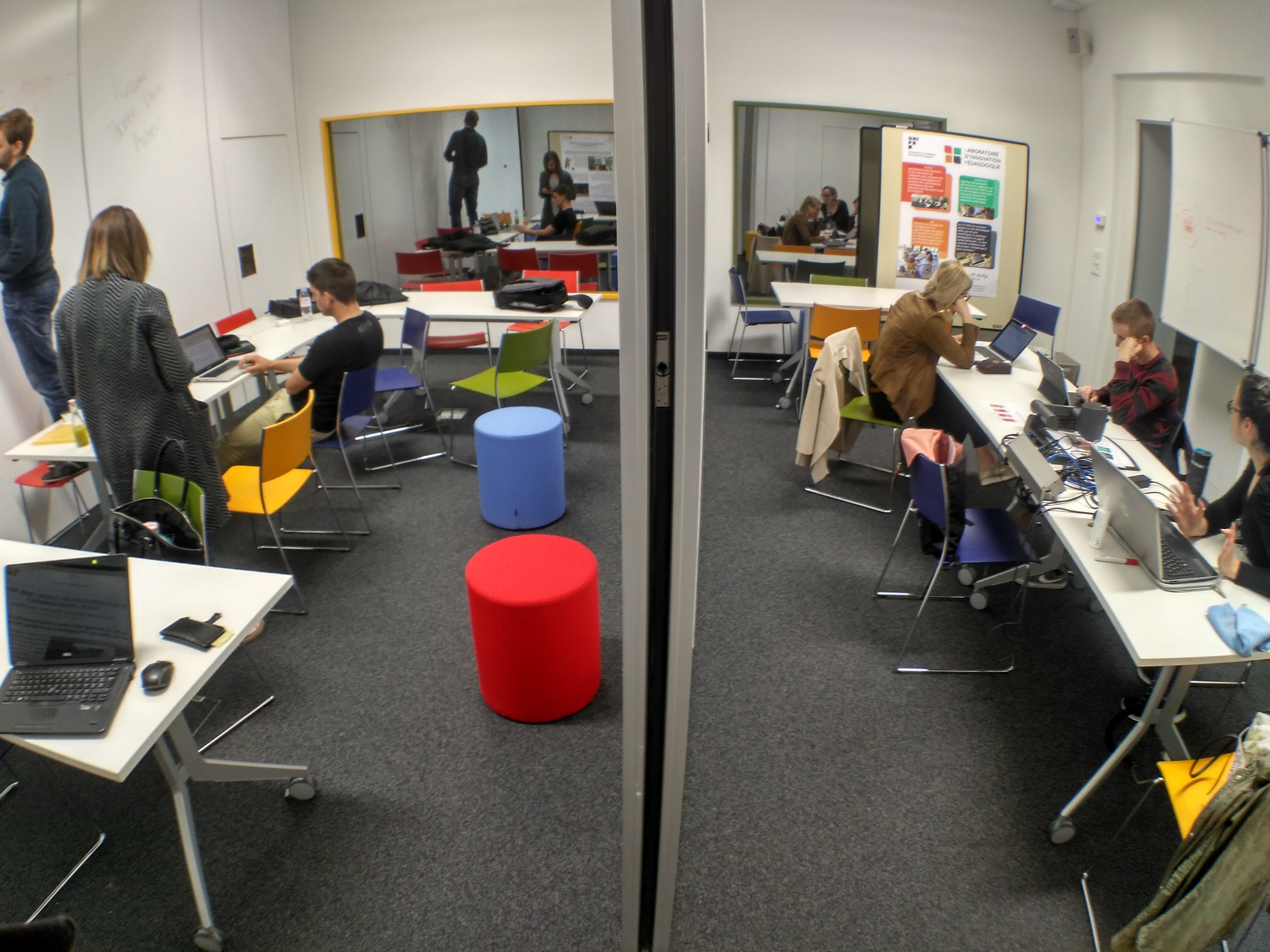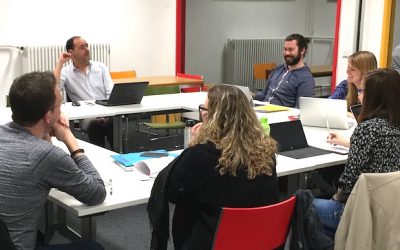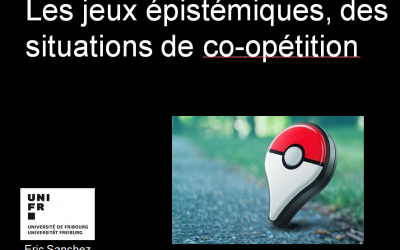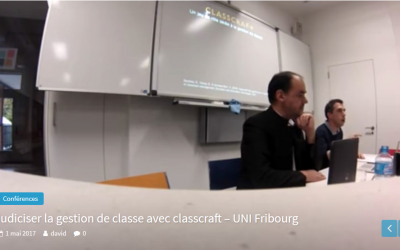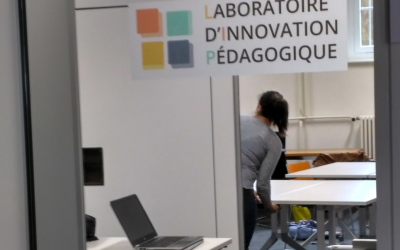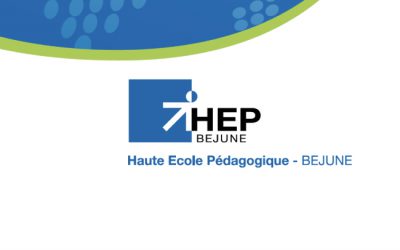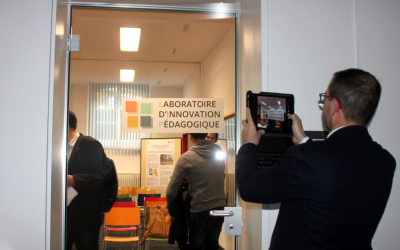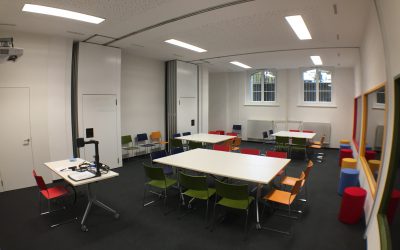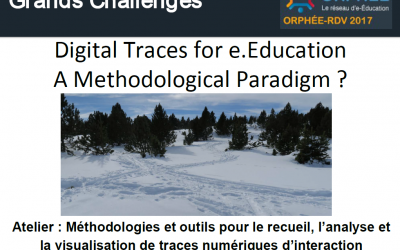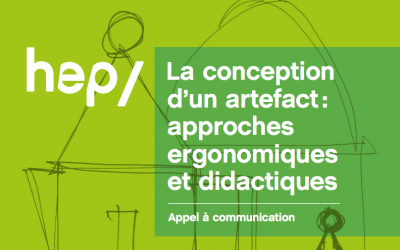co.LAB – A Digital Lab for the co-Design, co-Development and co-Evaluation of Digital Learning Games
Interest in Digital Learning Games (DLGs) has flourished at all levels of education. Digital Learning Games contribute to increasing students’ motivation and engagement, and are effective tools to support learner centered teaching practices. However, the design, development and uses of DLGs remain an issue due to the gap between teachers, game developers and researchers.
At the crossroads between educational and computer sciences the goal of the co.LAB project is to improve the design, development and uses of Digital Learning Games at all educational levels in Switzerland. This goal will be achieved by the development of what we call the co.LAB: a collaborative methodological framework between teachers, game developers and researchers in educational science, associated with a collaborative digital platform dedicated to co-design, co-development and co-evaluation of DLGs.
With the development, implementation and assessment of the co.LAB methodology and digital platform, we want to answer the following research questions (RQ).
RQ1: What methodology is needed to support collaborative DLG design and development?
RQ 2: What are the digital platform features necessary to support the collaborative DLG design and development process?
RQ 3: What are the effects of the methodology and digital platform on development cost and duration (efficiency)?
RQ 4: What are the effects of the methodology and digital platform on the quality of DLGs produced (relevance and effectiveness)?
RQ 5: What are the drivers for adoption of the methodology and digital platform by the educational, game developer, and research communities?
Following a design-based and mixed methodology, the co.LAB methodology and digital platform will be implemented and tested with the design, development and evaluation in real educational contexts of two showcase games dedicated to medical education (higher education) and computational thinking (secondary education). They will be used as a proof of concept. The experimentations will be carried out with classes both in a secondary school and at a university of applied sciences. The data collected will be based on an ethnographic approach on the one hand (questionnaires and focus groups carried out with stakeholders), and on the digital traces of users of the platform on the other hand.
By including a digital infrastructure for digital learning resources development and by providing, as a use test result, two digital learning games the project is fully in line with the PNR77 goals and more specifically with the module “Education, learning and digital change”. In addition, the co.LAB methodology, digital infrastructure and laboratory may serve both as an example of the introduction of digital in education and as a basis for future co-development of open digital educational resources in general.
Durée du projet
01/2020 – 12/2023
Financement
Fonds National Suisse

Requérants principaux
Dominique Jaccard HEIG-VD et Eric Sanchez, Université de Fribourg
Partenariat
Haute Ecole d’Ingénierie et de Gestion du Canton de Vaud
Membres du projet
Estelle Prior Unige
Mariem Jaouadi Unige
Membres associés
Nadine Mandran LIG/U. Grenoble
Matthieu Vermeulen IMT Nord Europe
Emmanuel Beffara U. Grenoble
Gaëlle Guigon IMT Nord Europe
Jérémie Humeau IMT Nord Europe
Anthony Fleury IMT Nord Europe
Contact
Eric Sanchez (eric.sanchez@unifr.ch)
Dernières actualités relatives à cette recherche
LIP – Laboratoire d’innovation pédagogique du CERF
Le laboratoire d’innovation pédagogique (LIP) du Centre d'enseignement et de recherche pour la formation a l'enseignement au secondaire (CERF) de l'Université de Fribourg est un lieu dédié à la recherche orientée par la conception, aussi appelée design-based research....
Les jeux épistémiques, des situations de coopétition
La semaine dernière, le laboratoire se déplaçait à Paris pour le séminaire AIDA. Résumé : Au cours de notre communication nous serons amené à montrer qu’un jeu épistémique [1] articule trois types de situations : (a) une forme de coopération qui conduit...
Ludiciser la gestion de classe avec Classcraft (2)
la présentation de Classcraft qui s'est déroulée dans le laboratoire le 26 avril dernier a été enregistrée. Elle est disponible sur le site de l'association AUPTIC Education.
Le broker, un acteur clef pour la recherche orientée par la conception
A l'occasion du colloque du CAHR, le laboratoire d'innovation pédagogique se déplacera jusqu'à la HEP Fribourg le jeudi 27 avril pour participer à un symposium sur les recherches collaboratives. Ce symposium est organisé par Corinne Marlot (HEP VD). Il vise a nourrir...
Journée d'étude : Innover en formation des enseignants
Le 20 avril dernier, le Laboratoire d'innovation pédagogique était convié à se présenter lors de la journée d'étude "Innover en formation des enseignants" organisé par la HEP BEJUNE à Bienne. Ce cours exposé avait donc pour objet de présenter le LIP et la manière...
Ludiciser la gestion de classe avec classcraft
Le 26 avril, de 18h00 à 20h30, le laboratoire d'innovation pédagogique accueillera l'association AUPTIC pour une soirée d'échanges de pratique consacrée à Classcraft. Joué dans plus de 50 pays par plus d’un million d’élèves, Classcraft est un jeu de rôle destiné à la...
Retour en images sur l'inauguration du LIP
Le laboratoire a été officiellement inauguré le 7 avril 2017 en présence d'une soixantaine de personnes, chercheurs et d'étudiant-e-s de différentes universités et HEP romandes ainsi que des membres des corps professoral et administratif de l'enseignement...
Le laboratoire désormais opérationnel
Après quelques semaines de travaux les peintures sont sèches, le mobilier livré et les outils multimédia installés. Le LIP sera officiellement inauguré le 7 avril 2017. La matinée sera consacrée à une présentation du laboratoire et des travaux qui ont été initiés...
Atelier traces numériques d'interaction à Font-Romeu
Du 3O janvier au 1er février 2017, le laboratoire d'innovation pédagogique s'est déplacé à Font-Romeu pour animer un atelier sur les méthodologies et outils pour le recueil, l’analyse et la visualisation de traces numériques d’interaction. Cet atelier s'est déroulé...
La conception d’un artefact : approches ergonomiques et didactiques
Le laboratoire d’innovation pédagogique se déplace aujourd’hui à Lausanne pour participer au colloque La conception d’un artefact : approches ergonomiques et didactiques. Nous y présentons les premières analyses conduites sur les séances de conception du jeu...

